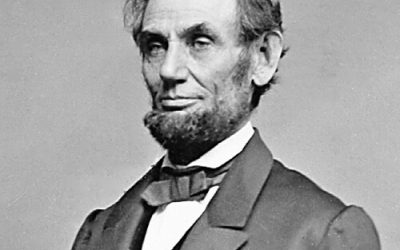
The Homestead Act was a groundbreaking piece of legislation that transformed various aspects of American life. It allowed adult citizens or those aspiring to be citizens, who had not taken up arms against the U.S. government, to claim 160 acres of government-owned land. There were two conditions: living on the land and cultivating it. After five years of commitment to the land, claimants gained full ownership, with only a small registration fee. Alternatively, they could secure title after six months by making minimal improvements and paying $1.25 per acre. Union soldiers were also granted benefits.
This act marked a significant shift in the distribution of public land, putting it into private hands. A staggering 270 million acres, equivalent to 10% of the total land area of the United States, were claimed and settled under this law, leaving an enduring impact on the nation.
Abraham Lincoln supported and signed the Homestead Act into law for several reasons, driven by both economic and political considerations. Here are the primary reasons why Lincoln advocated for the Homestead Act:
- Encouraging Western Settlement: One of the central goals of the Homestead Act was to encourage westward expansion and settlement of the frontier lands. By offering individuals the opportunity to claim and cultivate 160 acres of government-owned land, Lincoln and other supporters of the act hoped to stimulate settlement in the western territories and states, which were largely undeveloped at the time.
- Promoting Economic Growth: Lincoln saw the Homestead Act as a way to boost the nation’s economic development. By settling and farming the land, homesteaders would contribute to agricultural production, which was a significant driver of the economy in the 19th century. This increased agricultural output could help feed a growing population and stimulate economic growth.
- Supporting Landless Farmers and Immigrants: The act aimed to provide opportunities for landless farmers, including immigrants, to acquire land and achieve economic independence. Many Americans and newcomers lacked the means to purchase land, and the Homestead Act was designed to address this issue by granting them access to land at little cost.
- Fostering a Stronger Nation: Lincoln believed that the Homestead Act would strengthen the nation as a whole. It would encourage citizens to move westward, establish communities, and contribute to the growth and development of the United States. This was particularly important during a time of division and war (the Civil War), as it helped unify the country around common goals and opportunities.
- Political Considerations: The Homestead Act was also a part of the Republican Party’s platform, and Lincoln, a Republican, supported policies that aligned with the party’s goals. The act was seen as a way to appeal to voters and garner support during a pivotal time in American history.
In summary, Abraham Lincoln endorsed the Homestead Act to promote westward expansion, stimulate economic growth, provide opportunities for landless farmers and immigrants, and contribute to the overall strength and unity of the United States. The act was a key piece of legislation that had a lasting impact on the nation’s development and settlement patterns.
Interestingly, the Homestead Act’s origins trace back to before the Constitution, reflecting the longstanding debate over government-owned lands. However, it didn’t solve all economic problems. Many laborers and farmers lacked the resources to establish farms and acquire necessary tools, seeds, and livestock. Most land claimants were from nearby regions, and ambiguous wording in the act led to fraud, with amendments only making matters worse. Much of the land ended up in the hands of speculators, ranchers, miners, loggers, and railroad companies. Out of 500 million acres distributed by the General Land Office between 1862 and 1904, only 80 million were claimed by homesteaders, with more small farmers acquiring land in the 20th century than the 19th.
In essence, the Homestead Act reshaped the American landscape and provided opportunities, but it also came with challenges and controversies, leaving an indelible mark on the nation’s history.




0 Comments